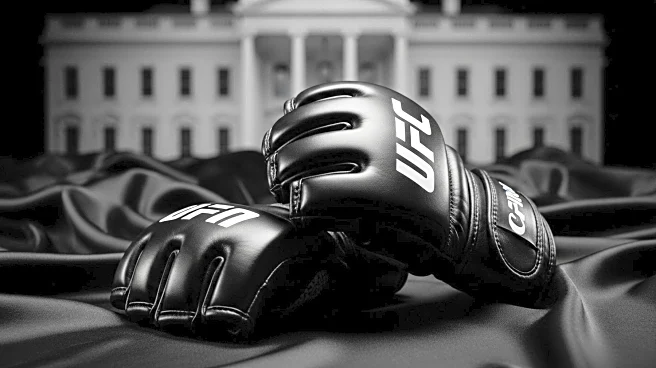What's Happening?
Former UFC champion Daniel Cormier has publicly advocated for Jon Jones to be included in a UFC event at the White House. Despite UFC President Dana White's reluctance due to Jones' past unreliability, Cormier believes Jones should be given the opportunity. Cormier suggested implementing contractual penalties to ensure Jones' commitment to the event. He emphasized the importance of having American fighters in prominent positions, especially at a high-profile event like one at the White House. Jones, who last fought in November 2024, has a record of 28 wins, one loss, and one no-contest.
Why It's Important?
The inclusion of Jon Jones in a UFC event at the White House could have significant implications for the sport and its perception in the U.S. It would highlight American talent in mixed martial arts, potentially boosting the sport's popularity domestically. Cormier's proposal to include contractual penalties could set a precedent for managing athlete reliability in high-stakes events. This situation also underscores the ongoing debate about balancing athlete behavior with their professional opportunities, impacting UFC's decision-making and public relations strategies.
What's Next?
If Dana White considers Cormier's suggestion, negotiations could begin to include Jon Jones in the White House event. This would involve drafting contracts with specific penalties to ensure Jones' participation. The decision could influence future UFC event planning and athlete management. Stakeholders, including fans and sponsors, may react positively to Jones' inclusion, given his popularity and skill. However, there could be concerns about his past behavior affecting the event's success.
Beyond the Headlines
Cormier's advocacy for Jones highlights broader issues in sports management, such as athlete accountability and the role of public figures in influencing organizational decisions. The situation may prompt discussions on ethical considerations in sports contracts and the balance between talent and reliability. It also reflects the cultural significance of hosting sports events at iconic locations like the White House, potentially affecting public perception of the sport.








